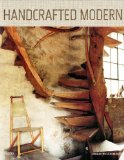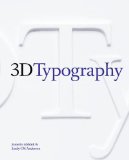 Last year saw several books published that we recommended to clients and purchased for family and friends. Among these were Handcrafted Modern: At Home with Mid-century Designers by Leslie Williamson, a collection of photographs of beautiful, iconic, and undiscovered mid-century interiors, including the homes of Russel Wright, George Nakashima, Harry Bertoia, Charles and Ray Eames, and Eva Zeisel, among others. Williamson’s photographs show these creative homes as they were lived in by their designers: Walter Gropius’ historic Bauhaus home in Massachusetts; Albert Frey’s floating modernist aerie on a Palm Springs rock outcropping; and Wharton Esherick’s completely handmade Pennsylvania house, from the organic hand-carved staircase to the iconic furniture.
Last year saw several books published that we recommended to clients and purchased for family and friends. Among these were Handcrafted Modern: At Home with Mid-century Designers by Leslie Williamson, a collection of photographs of beautiful, iconic, and undiscovered mid-century interiors, including the homes of Russel Wright, George Nakashima, Harry Bertoia, Charles and Ray Eames, and Eva Zeisel, among others. Williamson’s photographs show these creative homes as they were lived in by their designers: Walter Gropius’ historic Bauhaus home in Massachusetts; Albert Frey’s floating modernist aerie on a Palm Springs rock outcropping; and Wharton Esherick’s completely handmade Pennsylvania house, from the organic hand-carved staircase to the iconic furniture.
 Another favorite volume of ours was 3-D Typography. We added “text” to the title of this blog so that we could cover two things we are passionate about: art that involves text and interesting books. 3-D Typography, which includes work by Gyöngy Laky and dozens of other artists who have created lettering out of everything from shopping carts and toilet paper to toothpaste and pinched flesh, fits both criteria. The book’s creation was serendipitous. The authors, Jeanne Abbink and Emily CM Anderson looked at three-dimensional type in the course on a redesign of American Craft magazine in 2007.
Another favorite volume of ours was 3-D Typography. We added “text” to the title of this blog so that we could cover two things we are passionate about: art that involves text and interesting books. 3-D Typography, which includes work by Gyöngy Laky and dozens of other artists who have created lettering out of everything from shopping carts and toilet paper to toothpaste and pinched flesh, fits both criteria. The book’s creation was serendipitous. The authors, Jeanne Abbink and Emily CM Anderson looked at three-dimensional type in the course on a redesign of American Craft magazine in 2007.
 Long overdue was the first comprehensive survey of modern craft in the United States, Makers: A History of American Studio Craft, by Janet Koplos and Bruce Metcalf. Makers follows the development of studio craft–objects in fiber, clay, glass, wood, and metal–from its roots in 19th-century reform movements to the rich diversity of expression at the end of the 20th century. More than 400 illustrations — including two photographs by Tom — complement this chronological exploration of the American craft tradition. Keeping as their main focus the objects and the makers — including Lenore Tawney, Ed Rossbach, Kay Sekimachi, Katherine Westphal, François Grossen, Lia Cook, Warren Seelig, Arturo Sandoval, Gyöngy Laky, Dorothy Gill Barnes, Clare Zeisler, Anni Albers, Lillian Elliott, Helena Hernmarck, Norma Minkowitz and Trude Guermonprez — the authors offer a detailed analysis of major works and discuss education, institutional support and the philosophical underpinnings of craft.
Long overdue was the first comprehensive survey of modern craft in the United States, Makers: A History of American Studio Craft, by Janet Koplos and Bruce Metcalf. Makers follows the development of studio craft–objects in fiber, clay, glass, wood, and metal–from its roots in 19th-century reform movements to the rich diversity of expression at the end of the 20th century. More than 400 illustrations — including two photographs by Tom — complement this chronological exploration of the American craft tradition. Keeping as their main focus the objects and the makers — including Lenore Tawney, Ed Rossbach, Kay Sekimachi, Katherine Westphal, François Grossen, Lia Cook, Warren Seelig, Arturo Sandoval, Gyöngy Laky, Dorothy Gill Barnes, Clare Zeisler, Anni Albers, Lillian Elliott, Helena Hernmarck, Norma Minkowitz and Trude Guermonprez — the authors offer a detailed analysis of major works and discuss education, institutional support and the philosophical underpinnings of craft.
 Another very special volume from 2010 is Written Weed, by Marian Bijlenga, published by Hein Elferink. This exquisite book includes 111 paste-ups / collages by the artist made of dried leaves, grasses and seeds. The images are like handwriting, Chinese characters, the letters of an alphabet. In order to emphasize the graphic quality of these works, the book is published in black/white. Only 400 copies were produced; each is numbered and signed. You can order it from browngrotta arts for $185.00
Another very special volume from 2010 is Written Weed, by Marian Bijlenga, published by Hein Elferink. This exquisite book includes 111 paste-ups / collages by the artist made of dried leaves, grasses and seeds. The images are like handwriting, Chinese characters, the letters of an alphabet. In order to emphasize the graphic quality of these works, the book is published in black/white. Only 400 copies were produced; each is numbered and signed. You can order it from browngrotta arts for $185.00
 Though it was written in 2009, I didn’t discover The Bird Catcher, by Laura Jacobs, until last year. I loved it and ordered copies for several friends. It’s a tender story of grief and healing in the big city. But it was the detailed description of the protagonist’s window displays for a high-end department store and the evolution of her closest friend’s craft gallery — including a display of elegantly crafted goblets — that I most appreciated.
Though it was written in 2009, I didn’t discover The Bird Catcher, by Laura Jacobs, until last year. I loved it and ordered copies for several friends. It’s a tender story of grief and healing in the big city. But it was the detailed description of the protagonist’s window displays for a high-end department store and the evolution of her closest friend’s craft gallery — including a display of elegantly crafted goblets — that I most appreciated.
